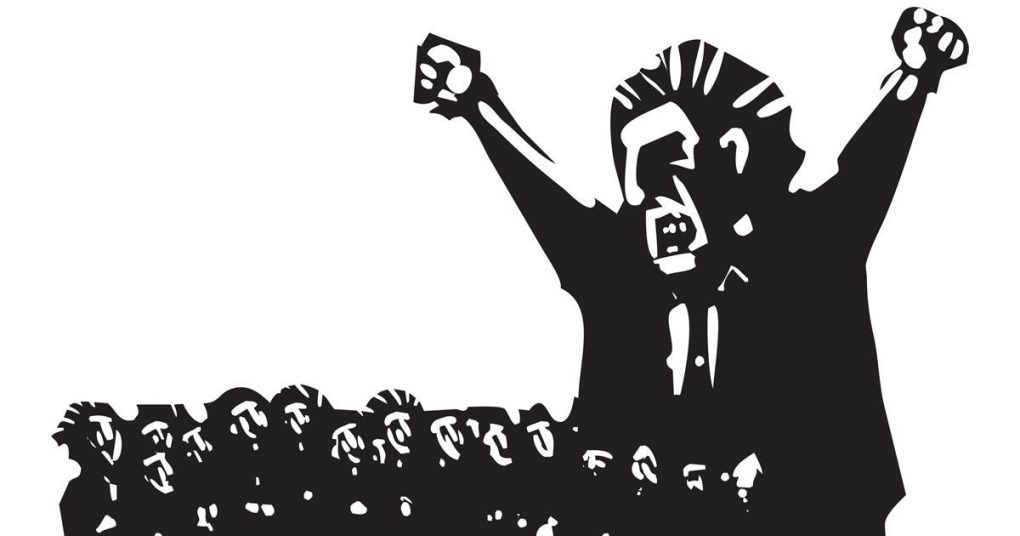
So-called liberal democracies have defined the West for the previous century and are deemed the pinnacle of political development. So much so that Western elites are firmly encouraged that this system of governance ought to be spread far and wide– be it indirectly (color revolutions) or directly (financial sanctions, kinetic military actions, or nation-building expeditions).
Liberal democracies are political systems in which individuals delegate political power to a political class that, at least on paper, is constitutionally restricted when it concerns exercising political power. Further, liberal democracies are supposed to secure civil liberties and nominally respect personal property rights.
What appears great to lots of on paper does not necessarily run smoothly in real time. Upon additional analysis of the past century of politics in the West, one quickly recognizes that the previous laissez-faire classical liberal order of the 19th century has become an afterthought to the progressive liberals these days. Moreover, modern-day liberal democracy has actually become bit more than a lightweight façade for soft authoritarianism. The impression of liberal democracy has actually been completely shattered by the method Western federal governments have actually responded to the covid-19 pandemic.
Occasions in Canada, a country held in high esteem by progressives worldwide, have actually been revelatory in that regard. Prime Minister Justin Trudeau’s invocation of the Emergencies Act to quell the Flexibility Convoy demonstrations showed the world that liberal democracy is not so “exceptional” and is just as vulnerable to descending into minor despotism as any other political system.
Demonstrations and blockades versus its strict covid-19 constraints were enough for the Trudeau federal government to release the proverbial hounds against people who dared to oppose federal government overreach.
The Trudeau routine has actually eliminated 2 birds with one stone by using its emergency situation powers to attack both tranquil protestors and the budding cryptocurrency sector— among the few avenues of human activity that has yet to be completely enveloped by the state. Deputy Prime Minister Chrystia Freeland announced in the middle of February that the crypto wallets of Flexibility Convoy protesters and those moneying the protests were frozen. While Trudeau relatively withdrawed his government’s emergency situation powers, the damage has actually already been done.
The Canadian federal government’s actions– not its boasting rhetoric about human rights– have laid bare the hollow nature of liberal democracy in the covid-19 age. When pressed against the wall, liberal democracies like Canada ultimately cracked and exposed to the world their true totalitarian colors.
What the West is seeing right now is the conclusion of over a century of nonstop government development. Government overreach has actually accumulated to such a degree that whatever impression Westerners might have been under about the flexibilities they apparently enjoy has actually dissipated.
Westerners will need to pause and exercise some self-questioning. Pace the great Ludwig von Mises, democracy isn’t the apotheosis of political systems. In Country, State, and Economy, Mises argued:
If one wants to make peace, then one should get rid of the possibility of disputes in between peoples. Only the concepts of liberalism and democracy have the power to do that.
The nineteenth-century range of liberalism facilitates social cooperation and voluntary exchange. By contrast, democracy, in the context of a mass society, has actually resulted in the advancement of a technocratic program that nominally respects property rights but micromanages human habits through the progressive facility of administrative diktats and uses a welfare state to buy off the population. Main banking and a sizable warfare state are likewise functions of this supreme state, which formed, not coincidentally, during the consolidation of mass democracy in the twentieth century.
In fairness to Mises, he was a male of his time. He pragmatically viewed democracy as the lesser of two evils on a war-torn European continent that was dotted with monarchies and nascent nationalist motions that were embracing collectivist ideologies. Nevertheless, democracy has actually outlived its effectiveness and can not consist of the torrential wave of statism multiplying across the West.
Returning to romanticized periods of the past is not a choice. We need to progress and blaze a new path to a more just society based on personal property and flexibility of association. The jurist Carl Schmitt as soon as said that “a historical truth is only real as soon as.”
Promoting an accept of laissez-faire liberalism is always valuable due to the fact that it puts some limitations on what a routine can get away with. But history suggests it is inadequate to rely only on ideological bulwarks.
It is maybe time to think bigger, and we can do so by drawing from among the more underappreciated aspects of Mises’s life’s work. Particularly, his focus on radical decentralization. This can be found in the type of nullification, soft secessionism, localism, and other kinds of breaking down central power. The difficulty prior to us is to patch together a decentralized alternative that develops on the favorable aspects of the previous liberal order while correcting its defects to create a new architecture of purchased liberty and voluntary association.
Believing beyond conventional modes of political company will be the essential difficulty as Westerners browse through the uncharted waters of woke despotism. Radical decentralization will be the lighthouse for Western nations that have actually lost their method. Whether these countries correct course remains to be seen.

